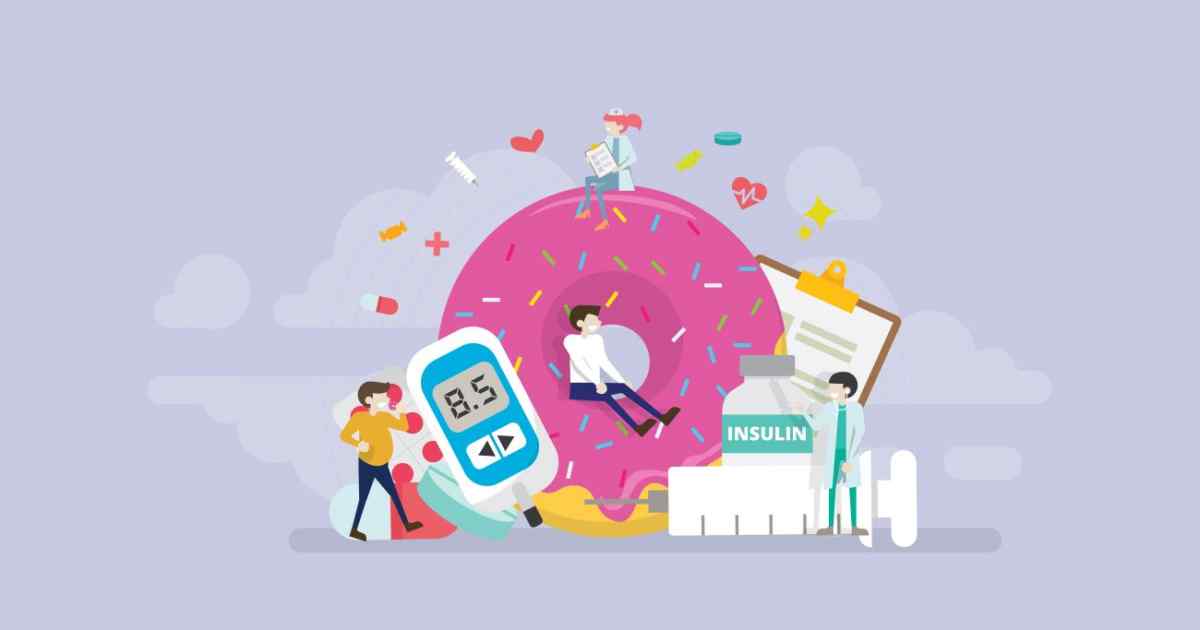Common, dangerous, and life altering. Diabetes is as common as it is difficult to notice. Fortunately, you can learn everything you need to know about diabetes with a search online right now, which could help you spot the early symptoms.
It stands as one of the most common diseases in the United States today, and unfortunately, it has become the country’s seventh leading cause of death. But it is treatable, providing you know where to go to seek help.
Diabetes 101
If you have diabetes, it means that your blood glucose or blood sugar levels are too high. There are a few different types of diabetes, which vary based on how each person’s body deals with insulin, the hormone that helps glucose get to cells in order to fuel them with energy.
With Type 1 diabetes, the body never makes insulin, which usually means that this type of diabetes is diagnosed early on and must be managed with insulin injections. If someone is diagnosed with Type 2 diabetes, it means that their body does not produce enough insulin or is unable to use it effectively. Type 2 diabetes typically develops later in life, after a period known as “prediabetes” where blood sugar levels are higher than normal, but not yet high enough to qualify as true diabetes.
Whether you have Type 1, Type 2, or just prediabetes, you should always be monitoring your health to make sure you’re managing your glucose levels. If diabetes is left unchecked, it can cause serious, long-term health problems, including kidney disease, glaucoma, skin infections, and nerve damage.
It also increases an individual’s risk for life-altering strokes and heart attacks. It’s important to learn about different symptoms of diabetes, so you can be aware of any potential changes in your condition. To help, here are three of the most important symptoms you should be aware of.
1. Feeling very hungry
One of the earliest symptoms of diabetes is increased hunger or thirst. It’s often the first sign that something is wrong. There have been many people who have gone to their doctor and have felt embarrassed telling them that they feel fine other than the fact that they seem to be hungry all the time.
However, if their doctor is able to diagnose their diabetes early enough, they have a much bigger opportunity to change their eating habits and make healthier lifestyle choices. This could go a long way to keeping their prediabetes from reaching full Type 2 diabetes.
The reason why prediabetic or diabetic people are hungry even though they’re eating regularly is because of their insulin levels. Typically, our bodies break down our food into glucose, which is used to give the body energy.
With lower insulin levels, our bodies are unable to use the glucose effectively, so it builds up in our body instead of being used the way it should. Even though you eat, your body keeps signaling that it’s hungry, in an effort to get the fuel it so desperately needs.
2. Tingling or numbness in the hands and feet
One symptom of diabetes that tends to present further along in a diabetes diagnosis is tingling or numbness in the hands and feet. It’s a sign that the elevated glucose levels in your body are starting to do real damage and should be taken extremely seriously.
This tingling or numbness is called diabetic neuropathy and is a sign that there’s ongoing nerve damage. Although diabetic neuropathy initially presents as a minor tingling or aching pain, it can quickly devolve into a burning, aching pain that gets worse over time. It will eventually interfere with a person’s ability to sleep and their overall quality of life.
If you’re experiencing minor tingling or numbness in your extremities and don’t already have a plan in place to control your blood sugar levels, talk to your doctor immediately.
This nerve damage cannot be reversed, so the only thing that you can do is control your blood sugar, which helps to slow down and mitigate the damage. In order to control the pain, your doctor may suggest an over-the-counter pain reliever, with the option of increasing the dosage or switching to a stronger medication later if the pain gets worse.
3. Sores or wounds that don’t heal
Our blood glucose levels affect more than just our appetite and energy levels. There are several things that depend on blood glucose, including our white blood cells, which are the vanguard in our body’s fight against bacteria, and red blood cells, which deliver nutrients to the various parts of our body.
These cells slowing down and not getting the support they need from our blood glucose has a major effect on our body’s response to invasions and threats. When we are injured, we rely on both our white and red blood cells to fight off any infection and help deliver nutrition to the wound so it can heal.
Nerve damage, which is another common side effect of high glucose levels, also affects wound healing. Since nerves are damaged, it’s often difficult for people with diabetes to tell how severely they’ve been hurt and judge correctly when they should get their injury treated.
This can lead to a wound becoming infected and that infection can spread to neighboring muscle and bone in a process called osteomyelitis. If the infection spreads into the blood, it’s called sepsis — and can be life-threatening. If you find that you have sores that don’t heal in the normal amount of time, consult a doctor immediately.
